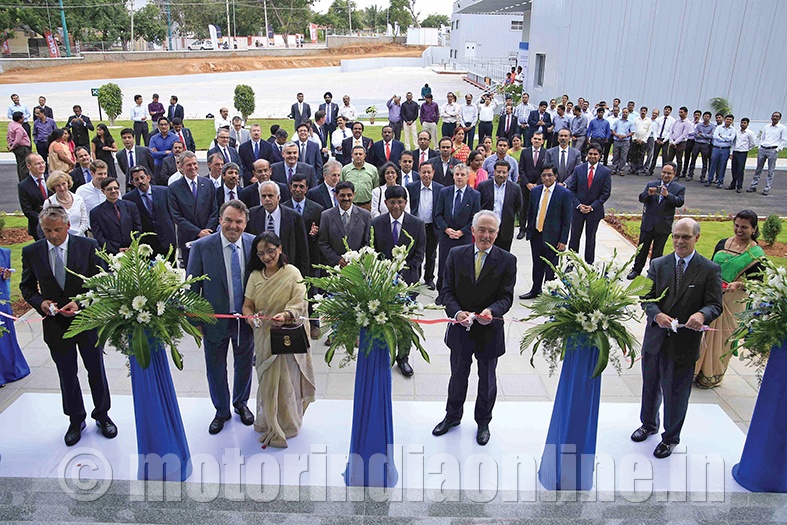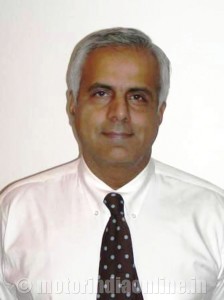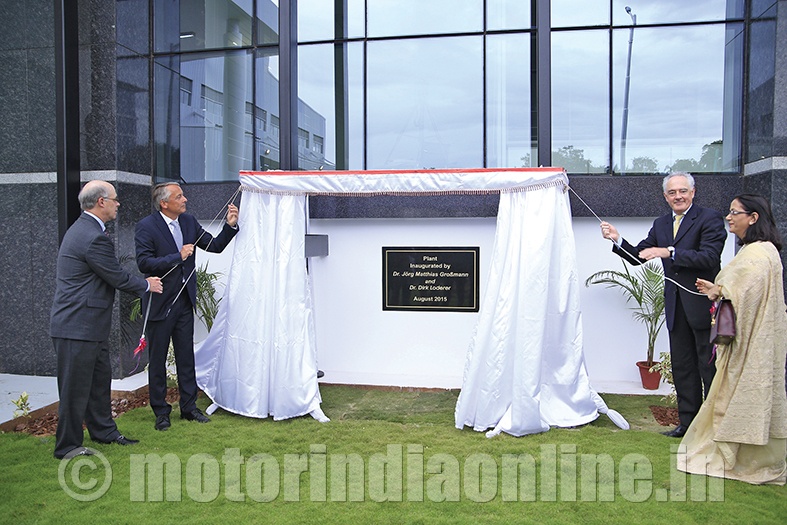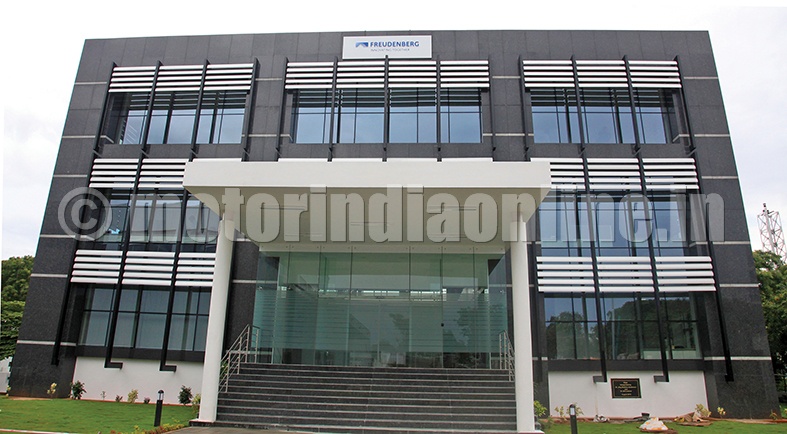Klueber Lubrication India from the Freudenberg Group, the maker of specialty lubricants and chemicals around the world, now has state-of-the-art laboratories, production and warehousing facilities in Mysore. Spread over a built-up area of 17,000 sq. mts., the facility is one of the most modern and largest around the world owned by the group. Pitched as its best, the parent company wishes to offer products of global standard from the facility, including specialty chemicals, greases, pastes, release agents, aerosols and oils to its local and global customers. Having stepped on to the Indian soil in 1999, Klueber has 14 manufacturing sites offering around 2,500 different specialty lubricants.

Part of the Freudenberg Chemical Specialties, Klueber Lubrication India’s sister concerns represented in India are Chem-Trend that manufactures release agents, OKS which makes specialty lubricants for maintenance, repair and overhaul (MRO) purposes, SurTec which produces metal surface treatment chemicals and another one which is into food chemicals.
Dr. Jorg Matthias Grossmann, Regional Representative India – Freudenberg Group, gives the larger perspective, “India and other Asian countries are the ones that determine what will happen in the next five, 10 years or a second decade from now.”
He says that for Europe and the US, India is still an emerging market, but insists that “If they have not visited a place like here, they cannot imagine that our quality standards, including HSE standards, are the same in India.” By far, this has been the heaviest investment made by the group worth Rs. 135 crores in the entire Asia-Pacific region, making it the largest facility outside Germany.

Klueber has carved a niche for itself as the world market leader in specialty lubricants and other tribological solutions with its heavy R&D. This, in turn, enables the company to serve as a product development center for its customers in South-East Asia and the Pacific Rim.
Mr. K.R.V. Parameshwar, President & CEO, Klueber Lubrication India, says: “A factory cannot choose a lubricant based on Indian conditions. It has to use the same lubricant everywhere in the world. So in an automobile, for example, that means -40 degrees to +50 degrees has to be the specification for any lubricant.” And that is what sets apart a specialty lubricant from a commodity lubricant.

One of the reasons why Klueber has been able to hold its ground in a ubiquitous yet niche segment is that it has created a market for itself where none existed before. Mr. Parameshwar shares: “Say someone buys a machine from Germany that comes with a recommendation that in order for the warranty to be valid you must use a particular brand of grease. Typically when the warranty period is over, they would switch to the cheapest possible grease, but then the machine now cannot run at the same speed it was designed to. So slowly people are opting for specialty products, and the market for specialty gets created.”
A product that is manufactured in any of its plants across the world can be sold anywhere in the world because of its truly global manufacturing standards. Mr. Parameshwar explains: “We choose a manufacturing strategy to decide which plant will produce for which country. In Europe we have five plants, in Asia we are in China and India. We will cater to most of the Asian demand as far as possible from China and India and minimize shipping from Europe. Also, we create a product for each application and each machine. So, no one plant will produce all the 2,500 products. The larger volume of some products which could be placed in 3-4 places we would prefer to produce in China and India for Asia.”
Defining specialty
The more it is a specialty lubricant the more the raw material is not directly petroleum-based but more synthetic. And each is created with specific application in mind depending on the industry. Mr. Parameshwar says: “If a normal lubricant would cost, say, Rs. 100 per kilo, we would have products going upto Rs. 50-60,000 per kilo. Our average would be over a thousand rupees. If they sell in tonnes, we sell in kilos and grams. So the more sophisticated the industry, the more modern machinery it has, the more you need specialty greases versus simple grease.”

Klueber serves industries such as cement, steel, textile, automotive and food with customized lubrication solutions.
Dr. Grossmann observes: “Our business is not measured in single metric ton or volume, it is the single application and the small volume we serve our customers with. Our challenge is the labour market in India to find qualified people who really support our business the best way, besides delivering the same quality to customers around the globe utilising the existing ecosystem in India.”
Mr. Parameshwar further says that, “In India, cement combined with power and mining, textiles and automotive would account for roughly 17-18 per cent of our sales.”
Klueber’s biggest demand comes from the cement industry in India. Mr. Parameshwar explains: “We have the highest market share in the world in the cement segment. Here we also have close links with the OEMs. So we have set up in the last one year a global competent centre for cement here. The world over our product development strategy for the cement industry will be driven from here.”
Klueber has its work cut-out in terms of educating its customers, old and new, to the benefits of specialized products offered. Mr. Parameshwar explains: “We divide the market into segments. There will be one expert only in one segment. We do a lot of technical training. We find problems that the customer has and provide a solution, and for that our team must be better trained technically than anybody else. So we hope to be seen as consultants in tribology, and therefore when anybody facing a problem would want to call us, and incidentally we sell the product.”
Working closely with a new client, allowing him to experiment and revert to the expert positioned at Klueber is one of the best practices that is followed here.
Mr. Parameshwar adds: “We see that either the client has a problem and he does not want to tell us or he does not know that he has a problem. We suggest our best practice and we help the client move up a performance level in terms of efficiency, productivity and quality of his products, and reduce his rejection rate. The re-lubrication interval is much longer and the amount disposed of is also less.”
Klueber believes that it has a large untapped market. It knows that it shall retain its market share because the market itself is growing steadily for its products.
Mr. Parameshwar says: “10 years ago we were producing 400 tonnes a year; last year we produced 3,550 tonnes. We expect that we will do 10,000 tons in the next five years.”
Roughly, 55 per cent of Klueber’s sales in India are manufactured locally, while the remaining 45 per cent of the products are imported. The Freudenberg Group sounds confident that any obstacles in their path can be smoothened effortlessly.
